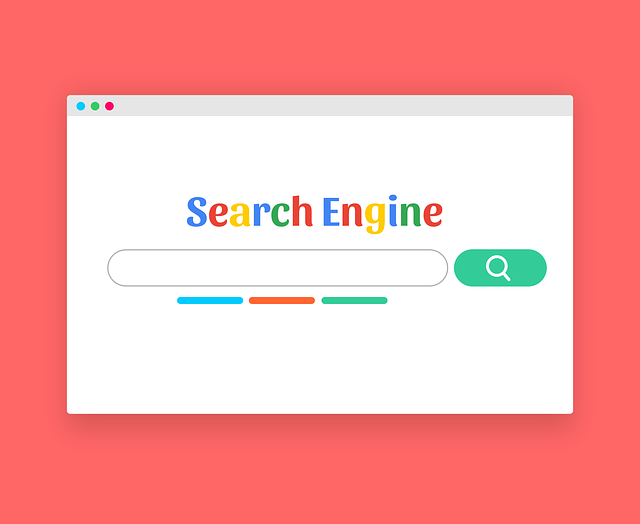AI-powered search revolutionizes information access by understanding user intent and context, surpassing basic keyword searches. Leveraging machine learning, these systems interpret complex questions and natural language prompts, offering personalized experiences tailored to individual preferences. Advancements in NLP and data analysis enable AI to continuously evolve, enhancing user satisfaction and driving engagement in the digital age. Businesses use AI-powered search for data-driven decisions, optimizing marketing and improving customer experiences through precise audience targeting and trend anticipation. The future holds more personalized, contextually relevant results, faster information retrieval, and innovative applications across industries.
In today’s digital age, search intelligence is transforming how we interact with information. Powered by AI-driven algorithms, ai-powered search technologies are evolving rapidly, refining results and enhancing user experiences. This article delves into the fundamentals of AI-powered search, exploring its evolution, impact on user experience, strategic applications for businesses, and future trends shaping this dynamic landscape. By understanding these aspects, organizations can harness the full potential of ai-powered search to stay competitive.
- Understanding AI-Powered Search Fundamentals
- The Evolution of Search Intelligence Technology
- Enhancing User Experience Through Advanced Search
- Optimizing Business Strategies with Search Insights
- Future Trends Shaping Search Intelligence Landscape
Understanding AI-Powered Search Fundamentals

AI-powered search is transforming how we interact with information, going beyond traditional keyword matching. It leverages machine learning algorithms to understand user intent and context, delivering more relevant results. This evolution means that simple text queries are just the beginning; AI can now interpret complex questions, natural language requests, and even visual prompts.
The fundamentals involve training models on vast datasets to recognize patterns and relationships. These models then process user inputs, analyzing syntax, semantics, and intent. By learning from user behavior and feedback loops, AI-powered search continues to refine its capabilities, offering personalized experiences that adapt to individual preferences and needs.
The Evolution of Search Intelligence Technology

Search intelligence has undergone a remarkable evolution, driven by advancements in artificial intelligence (AI) and machine learning algorithms. In the past, search technologies primarily relied on keyword matching and ranking, delivering results based on simple textual similarity. However, with the emergence of AI-powered search, the landscape has shifted dramatically. Modern search intelligence platforms now employ sophisticated natural language processing (NLP) capabilities, enabling them to understand user intent, context, and semantic nuances.
This new era of search intelligence allows for more accurate and relevant results, providing users with precise answers rather than simply a list of websites. AI-powered search algorithms can learn from user behavior, adapt to individual preferences, and continuously refine their understanding of search queries. As a result, users benefit from highly personalized search experiences that cater to their unique needs and interests, revolutionizing the way information is discovered and accessed in today’s digital age.
Enhancing User Experience Through Advanced Search

In today’s digital landscape, enhancing user experience through advanced search capabilities is paramount for any online platform or e-commerce site. AI-powered search technologies are revolutionizing how users interact with information, offering faster and more accurate results than traditional methods. By leveraging artificial intelligence algorithms, these systems can understand natural language queries, context, and intent, providing personalized and relevant responses. This level of sophistication not only improves user satisfaction but also drives engagement and fosters a loyal user base.
One of the key benefits is the ability to sift through vast amounts of data swiftly. AI search tools employ machine learning models to learn from user behavior, continually refining their algorithms. This means that as more users interact with the system, search results become increasingly tailored to individual preferences. As a result, users can find what they need more efficiently, leading to higher conversion rates and improved overall online experiences.
Optimizing Business Strategies with Search Insights

In today’s digital landscape, businesses are increasingly reliant on data to drive decision-making and stay competitive. One powerful tool that has emerged is AI-powered search, which goes beyond traditional keyword searches by analyzing intent, context, and user behavior. By leveraging these insights, companies can optimize their business strategies in real-time. For instance, understanding customer preferences through search patterns allows businesses to tailor marketing campaigns, improve product offerings, and enhance overall customer experience.
AI-powered search also enables more precise targeting of audiences, ensuring that marketing efforts are not just reaching the right people but resonating with them as well. This level of granularity is pivotal in a crowded market where every competitive edge matters. Additionally, by continuously monitoring search trends, businesses can anticipate shifts in consumer behavior and market dynamics, allowing for proactive adjustments to their strategies.
Future Trends Shaping Search Intelligence Landscape

The future of search intelligence is poised for a significant transformation, largely driven by advancements in artificial intelligence (AI) and machine learning technologies. AI-powered search is expected to become more sophisticated, offering personalized and contextually relevant results to users. As search engines evolve, they will be able to understand user intent better, incorporating natural language processing to interpret complex queries and deliver precise answers. This shift promises an enhanced user experience, where information retrieval becomes faster and more intuitive.
Moreover, the integration of AI will enable search intelligence platforms to learn from user behavior patterns, adapt to new trends, and continuously improve their algorithms. With machine learning capabilities, these systems can analyze vast amounts of data, identify patterns, and provide insights that were previously difficult to attain. This not only enhances search accuracy but also opens up possibilities for innovative applications in various industries, revolutionizing how information is discovered, analyzed, and utilized.
Search intelligence, driven by advancements in AI-powered search, is transforming how we interact with information and doing business. From understanding user intent to optimizing strategies based on insights gathered from vast data, the evolution of search intelligence technology promises a future where finding answers is faster, more accurate, and highly personalized. As we look ahead, embracing these trends will be key for businesses to stay competitive in an increasingly digital world, ensuring they deliver relevant, valuable experiences to their users.
